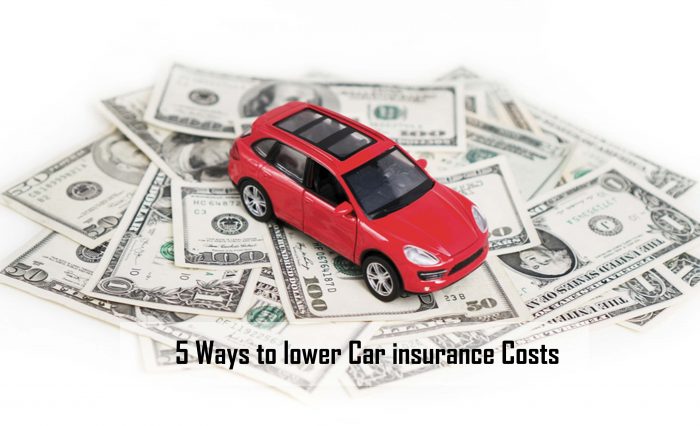In the realm of personal finance, finding ways to cut down on expenses without compromising quality is a goal we all share. One area where substantial savings can be achieved is in the realm of car insurance. We understand that navigating the complex landscape of insurance policies can be daunting, so we’ve compiled a comprehensive guide to help you lower your car insurance costs without sacrificing coverage. Let’s dive into five smart strategies that can make a significant impact on your monthly premiums.

How Much Does Car Insurance Cost?
Car insurance costs are different for all drivers, and it depends on their place of residence, their choice of insurance company, and the type of coverage they have.
So when trying to save money on car insurance, it helps to know what the typical driver pays. Based on the latest figures available from the National Association of Insurance Commissions, an average person spends $1,190 on car insurance.
How to Lower Your Car Insirance Costs
In this guide, we have curated a list of ways to lower your car insurance costs, which will also help you make an informed decision.
1. Bundle Your Policies for Maximum Savings
One effective way to reduce your car insurance costs is by bundling your policies. Consider consolidating your auto insurance with other insurance needs, such as homeowner’s or renter’s insurance. Insurance providers often offer substantial discounts for bundling policies, making it a strategic move for cost-conscious individuals. By doing so, you not only simplify your insurance management but also enjoy the added benefit of lower overall premiums.
2. Raise Your Deductibles for Immediate Savings
A straightforward way to lower your car insurance costs is by adjusting your deductibles. The deductible is the amount you pay out of pocket before your insurance coverage kicks in. While opting for a higher deductible means you’ll pay more in the event of a claim, it also translates to lower monthly premiums.
Evaluate your financial situation and choose a deductible that aligns with your ability to cover unexpected expenses. This strategy can lead to immediate savings and long-term financial security.
3. Maintain a Stellar Credit Score for Lower Premiums
Believe it or not, your credit score can play a significant role in determining your car insurance premiums. Insurance providers often use credit-based insurance scores to assess risk. Individuals with higher credit scores are deemed more responsible and, consequently, may qualify for lower premiums.
To ensure you benefit from this factor, prioritize maintaining a healthy credit score by paying bills on time, reducing outstanding debts, and regularly checking your credit report for accuracy.
4. Drive Safely and Take Advantage of Safe Driver Discounts
Your driving record is a key factor influencing your insurance costs. A clean driving history not only keeps you safe on the road but also opens the door to various discounts. Many insurance companies offer safe driver discounts for individuals with a history of accidents or traffic violations.
Take defensive driving courses to brush up on your skills, potentially leading to additional discounts. By prioritizing safe driving habits, you not only protect yourself and others on the road but also contribute to long-term savings on your insurance premiums.
5. Shop Around for the Best Rates
In the ever-evolving landscape of the insurance market, prices can vary significantly among providers. To ensure you’re getting the best possible deal, it’s crucial to shop around for competitive rates. Don’t settle for the first quote you receive; instead, explore multiple options to identify the most cost-effective coverage that meets your needs.
Online comparison tools make this process convenient, allowing you to input your information once and receive quotes from various insurers. This proactive approach empowers you to make an informed decision based on both coverage and affordability.
In conclusion, lowering your car insurance costs is not an insurmountable challenge. By implementing these five smart strategies, you can take control of your insurance expenses while maintaining the coverage you need.
Remember, proactive measures such as bundling policies, adjusting deductibles, maintaining a strong credit score, practicing safe driving habits, and shopping around can collectively contribute to substantial savings over time.



